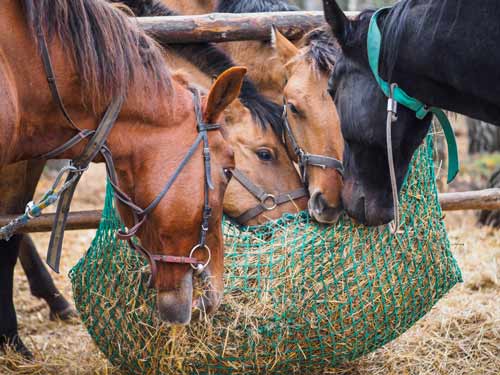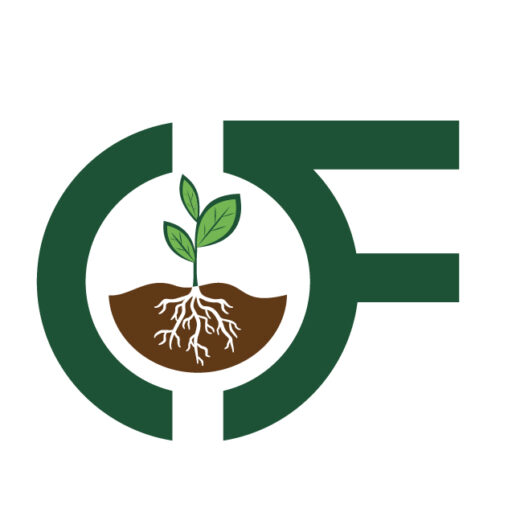The Benefits of Rotational Grazing and Hay Use in Livestock Management
Owning and caring for a horse is an incredibly rewarding experience, particularly for women who are passionate about these magnificent animals. From understanding the right nutritional needs to maintaining good health practices and refining your riding skills, horse care involves a combination of knowledge, dedication, and compassion. In this guide, we’ll explore essential tips on horse nutrition, health maintenance, and how to enhance your riding experience, focusing on the specific needs of women in the equestrian world.

(Four horses eating hay feed.)
Horse Nutrition: What Should You Feed Your Horse?
Nutrition is a cornerstone of horse care, and knowing what to feed your horse is critical to ensuring their health and well-being. The majority of a horse’s diet should consist of high-quality hay, which provides essential nutrients. Different types of hay serve different purposes depending on the horse’s age, energy requirements, and overall health. For example, alfalfa hay is rich in protein and calcium, making it an excellent choice for young horses or lactating mares that need a boost in energy. On the other hand, adult horses or those with lower energy needs can benefit from lower-calorie options such as orchard grass or timothy hay.
When feeding your horse, it’s essential to focus on the nutritional balance with hay. Good hay should provide the right mix of protein, fiber, and energy. As a general rule, horses should consume about 1.5% to 2% of their body weight in hay every day. This means that a horse weighing 1,000 pounds would need between 15 and 20 pounds of hay daily. If you’re inclined towards a natural approach, many owners opt for chemical-free or organic hay. This aligns with natural horse care feeding principles, emphasizing sustainability and better digestion for the horse.
How Much to Feed and Care for a Horse
Feeding your horse isn’t just about providing the right hay; understanding how much and when to feed them is equally important. Horses are natural grazers, which means they need consistent access to forage throughout the day. Ideally, hay should make up 70-80% of your horse’s daily intake, ensuring they receive the bulk of their nutrition from forage. Depending on your horse’s activity level, age, and specific health needs, you may also need to add grains or other concentrates to their diet, especially for performance horses involved in high-energy activities like jumping or barrel racing.
Proper hydration is another key aspect of horse nutrition. Always ensure that your horse has access to fresh, clean water, particularly in warmer climates or after intense physical activities. Adding salt licks or electrolytes to their diet can help in maintaining proper hydration, especially during the hotter months or after strenuous riding sessions.
Maintaining Horse Health: Regular Check-ups and Preventative Care
Regular health maintenance is essential to keep your horse in peak condition. Scheduling routine vet visits every six months is a great way to monitor your horse’s overall health, including vaccinations, dental care, and deworming. Dental health is especially crucial because horses’ teeth continue to grow throughout their lives. Regular dental checks ensure that your horse’s teeth remain healthy, preventing any discomfort or difficulty in chewing hay, which could otherwise lead to weight loss or other health issues.
Additionally, hoof care is vital for a horse’s mobility and overall well-being. It’s often said that “no hoof, no horse,” emphasizing the importance of regular farrier visits every six to eight weeks. Proper hoof care helps prevent problems like cracks, abscesses, and thrush, ensuring that your horse remains comfortable and healthy.
Riding and Fitness: Building a Strong Bond with Your Horse
Riding isn’t just a physical activity; it’s also an opportunity to build a deeper bond with your horse. Whether you’re a beginner or a seasoned rider, taking riding lessons can help improve your posture, riding technique, and overall understanding of horse behavior. Riding regularly ensures that your horse remains mentally stimulated and physically fit. It’s important to provide your horse with a variety of activities, including trail riding, dressage, or groundwork, to maintain their fitness and keep them engaged.
Having the right tack and equipment also plays a critical role in ensuring both you and your horse are comfortable. Properly fitted saddles and bridles can prevent discomfort and injuries for both parties, enhancing the riding experience. Women riders, in particular, should ensure their equipment complements their body type and riding style, as this not only improves performance but also prevents strain.
Horse Riding for Women: Empowerment Through the Saddle
Horse riding is an empowering experience for many women, offering both physical and emotional benefits. Sports like barrel racing provide a platform for female riders to showcase their agility and precision, often with the help of high-energy feed like alfalfa hay. Barrel racing requires a deep bond between the rider and the horse, where trust and skill come together in a thrilling display of teamwork.
For those who prefer a slower pace, trail riding offers a peaceful way to connect with nature while bonding with your horse. It’s also an excellent way to de-stress and give your horse a break from more intense training. For many women, horseback riding provides not only an opportunity for exercise but also a therapeutic escape, strengthening both body and mind.
In recent years, many women have taken the lead in horse rescue efforts, rehabilitating horses that have been neglected or mistreated. Feeding these rescued horses the right hay is essential, with low-sugar options often preferred to help them regain health. These women serve as role models within the equestrian community, demonstrating compassion, dedication, and expertise in horse care
Choosing the Right Hay for Your Horse
Selecting the best hay for your horse is crucial to ensuring their health and performance. Whenever possible, it’s advisable to choose locally sourced hay. At Ohana Farms, we provide high-quality hay tailored to meet your horse’s nutritional needs. Locally grown hay has the advantage of being fresher, with higher nutritional value compared to hay transported over long distances.
The climate in areas like Pasco and the Tri-Cities also affects hay quality, and local suppliers have a better understanding of how to grow hay suited to the region. Choosing local hay not only supports sustainable farming practices but also reduces your carbon footprint. For horses that need a balanced diet, a combination of orchard grass and alfalfa hay is often ideal, providing a good mix of protein and fiber.
Conclusion
Caring for a horse is an incredibly rewarding journey, and for women in particular, it offers a unique sense of empowerment and connection. By following expert guidelines on nutrition, health maintenance, and riding, you can ensure that your horse remains happy and healthy. Whether you’re a competitive rider or simply enjoy the peaceful companionship of trail rides, knowing how much to feed and care for your horse is essential. At Ohana Farms, we’re committed to helping you make informed choices for your horse’s nutrition, offering top-quality hay that meets their needs.

